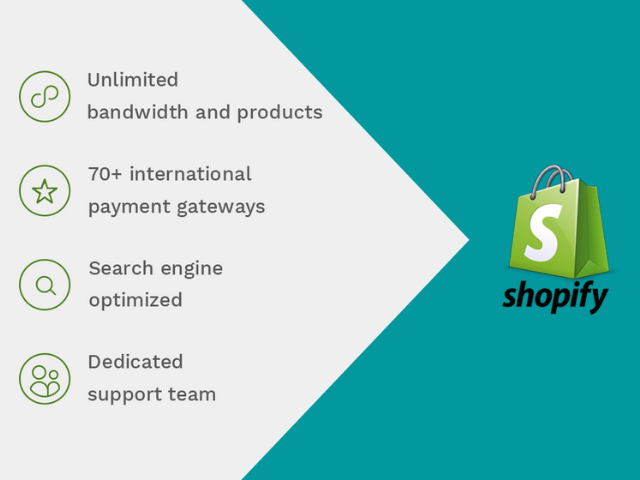Is Shopify a scam? It is a must-asked question among those who want to arm themselves with sufficient knowledge before doing e-commerce where everybody is doing e-commerce.
Whether it’s from a friendly-destination or outlandish-sourced, an email fraud or ID theft, a couple of hundreds-dollars or a multi-million dollars in-loss, when a scam hits you, it cuts deeply!
If you were previously-endured with cyber-criminal activity, then it makes sense to ask is Shopify a scam or a boon. If not, then knowing is Shopify a scam or not makes even more sense to continue having an e-commerce-using status as a scam-free.
So, let’s digest this topic and know, once and for all, is Shopify a scam or a for all-made, safe environment to trade goods?

Ecommerce And Fraud: The Online Consumer Disquiet-Journey Started In 1993!
Fraud doesn’t discriminate against the medium and the 16 million+ US users who got their digital ID theft back in 2017, the 1.4 billion+ US dollars lost-to-scammers back in 2018, and many of the other similar internet-scamming cases accentual such fact.
As a matter of fact, internet fraud is a 20 years-plus crisis that was, is, and ruefully will continue to muddle the online user experience for those 20 million+ users who are blindly-trusting e-commerce to replace the traditional way they used to trade benefits.
Can you imagine getting scammed by a virtual nineties-version of Wesley Snipes or Tom Hanks? If not, then you would’ve got scammed deep into the head if it was 1994, because that’s how it’s all started!
Back then, there was no Google for people to ask is Shopify a scam-type of questions. It was the internet sun outset, while-online self-defensive knowledge was in the toilet, and cyber-criminals took great advantage of so.
The use of stolen credit cards and “famous names” – as silly as it sounds today – was a full-guaranteed easy money-making way in 1994. eCommerce-copycat sites were the common fraud way in 1998 with the increase of e-commerce sites and the blindly-filled with the 1998 internet user’s trustworthiness mindset.
Phishing was the trending technique among 2004-2005 online-scammers. Near one billion US dollars (in that time’s value) was lost. 2007 was an educational relief year that made people more mind-opened less trust-giving regarding the zero and one medium. With more grownup internet, more sophisticated online hoaxes started to surface. Is the 2006-founded company a real community-benefit seeker, or is Shopify a scam?

A Quick Introduction About Shopify
Tobias Lütke, Daniel Weinand, and Scott Lake are the founding team behind the 14-year-old, 120 million dollars valued Canadian internet company.
Shopify is an all-in-one internet tool that allows the user to do payments, marketing, selling, and all trading-related transactions from the home’s comfort.
Before it was an e-commerce platform, the name Shopify existed as a regular online store. No one was questioning is Shopify a scam or not back then sense the site’s word of the mouse wasn’t as powerful as today’s!
In the year of 2010, Shopify was handling $100 million in revenue without any red flags or anyone is having to ask is Shopify a scam. 2012 was the shiny year for the Canadian business that sold over $740 million worth of products and reached over 90 countries. Around that time, is Shopify scam-related keywords flooded Google search queries.
Eight years later, and with a more grownup-version of the site, people are still asking is Shopify a scam or not.
Shopify Excessive Popularity: It’s All Explained!
It’s hard to imagine a one-favorable player in an industry that’s expected to reach $4.9 trillion by the end of next year! Nevertheless, Shopify did it! Is Shopify a scam? Extensive web searches aren’t the only indicator of the platform’s popularity.
The platform’s affordability, customizability, and built-in tools are the three main factors for its skyrocketing ever-growing popularity.

Who Should Be Using Shopify?
Shopify is a tool. A tool that anyone can use, but not anyone can craft. Building a store on Shopify is as easy as starting a YouTube channel – one click-away task – building a successful Shopify store, on the other hand, is a little bit harder to tackle the task.
Those who should be using Shopify are the ones that have:
- A money making-tree idea.
- A ready-to-be-served item (can be physical or digital).
- A unique marketing strategy.
- A good at-hand cash flow.
- A highly-qualified team.
So, Is Shopify A Scam After All?
No. Shopify isn’t a scam in itself as an e-commerce platform; nevertheless, scam isn’t something you should roll out while doing e-commerce on Shopify. What does that mean?
Let’s look at this two-point discussion for better assimilation.
- Shopify does zero background checking for customers that want to register as an e-commerce entity with them.
Shopify might’ve chosen to dismiss doing the detective work to sell themselves out to the public as a for-everyone modern-type platform (which worked!) or help their community grow larger (which proved to be effective!).
While this doesn’t necessarily mean that Shopify tolerates with scam-activity, it makes the platform a land full of opportunities for crooks and swindlers hoping to make some money at the expense of the internet-ignorant.
The countless on-Shopify scam accidents that the users have been exposed to make them question the platform’s credibility.
That’s why many ask is Shopify a scam instead of asking is any Shopify-company legitimate.
- Shopify has strict-allegiance towards its users. However, their loyalty might be headed towards the seller more than a buyer.
Since you are asking is Shopify a scam, there a big chance that you’ve been exposed to a scam accident on the platform.
How did the Shopify CS team reply to your countless angry-protests? I am a no Shopify scam-victim, but I guess they said you something that looks like this: “we can’t help you getting your money back, on-platform deals are between you and the seller.”
It’s a lamentable-to-face condition, I know! But hey, it’s Shopify!

A 5-Tips Methodology For Buyers To Arm Their On-Shopify Presence
- Try to do buying with Shopify sellers who you knew outside the platform (or at least has someone else who knew them outside Shopify).
- Before purchasing a product on Shopify, ask a friend who uses Shopify where he/she would buy that product from (maybe there is one seller who everyone agrees on his/her authenticity).
- Try to get your goods to supply from the big brands located on Shopify.
- Try to check the phone numbers store owners provide before making a purchasing decision (if no one replies, no one will reply after you pay the money!).
- Try to feel the sense of the store’s nature. Any stores with superhuman promises are mostly a nest-egg for scammers.
What About The Sellers? Are Shopify Store Owners At Scam-Risk Too?
Scamming is like a dual-player chess game. If one party refuses to take the game, the other can search for candidate opponent to face.
If you own a Shopify store, you can secure it.
- A hard-to-guess password.
- Two-factor authentication.
- Don’t give any third-party apps the ability to write to your store.
- Take backups matter seriously.
- Has an SSL certificate activated?

Still, Think Shopify Isn’t Your Type Of Platforms? Here Are The Top 5 Alternatives For You
#1 WooCommerce

The 2011-made WordPress plugin is the user’s most common alternate destination from Shopify. Both wordpress.com and wordpress.org registered users are eligible to use the WooCommerce add-on.
Shopify beats WooCommerce in aspects like
• Pricing and Hosting
Shopify’s basic plan is $25 a month worth, while you will need about $37 a month for WooCommerce – $25 for hosting and $12 for the domain name.
• Built-in Features
For instance, WooCommerce can’t integrate with business software or import product data in a CSV file.
• Method of Payment
With WooCommerce, you can pay using Stripe and PayPal. Any other payment method you will pay fees for before using it. Shopify, on the other hand, offers more than 70 different payment methods.
WooCommerce wins in:
• Themes
There is no place better for shopping for themes other than WordPress’s 200+ themes library.
#2 BigCommerce

Big Commerce is another famous name that pops up whenever someone asks is Shopify a scam.
Shopify wins the game in:
• Pricing:
You can start to do e-commerce with a better price on Shopify ($25 a month against BigCommerce $29.95 a month).
Big Commerce takes the lead on
• Product Options
Shopify allows sellers to have three options for their products. For instance, if the product is a t-shirt, the seller can put three versions of the same t-shirt on Shopify according to color, size, and material.
BigCommerce gives its users the freedom of choice to dedicate up to 250 different forms or versions for the one product.
#3 Wix

Wix is another platform that can live up to the game against big names like WordPress and Shopify.
Shopify is the winner on:
• Dropshipping
Dropshipping ability is introduced newly to Wix’s environment. Shopify has far more options for Dropshipping and is considered the best to go with.
Wix takes the lead on
• Pricing
$13 a month is enough to launch and operate a decent Wix-hosted website. While having a fully functioning e-commerce storefront will cost you nothing more than $23 a month with Wix.
#4 Magneto

The name Magneto might not be as popular as its counterpart Shopify, yet, the open-source WordPress-like platform has a lot to bring to the table when it comes to e-commerce.
Shopify is the game-winner on:
• Apps and Add-Ons
You might need to possess a certain level of coding skill to install plugins present on Magneto Marketplace.
Magneto is the leader on:
• Payment Handling
Magneto is one of the few e-commerce platforms that give you a 150+ payment method. While this might sound unneeded at first, it can prove beneficial when you switch locations or run into payment-related troubles.
#5 Squarespace

The 2003 unfamiliar web platform has a competitive advantage against Shopify in a few areas.
Shopify beats Squarespace on:
• The ability to sell your products on other digital mediums
Unlike Squarespace, Shopify sellers can buy their products whenever they see fit. If you are a Shopify seller who owns a blog with a decent amount of traffic, you can embed your Shopify products there and give your readers a shortcut to buy goods from you.
Squarespace tops Shopify on:
• Search Engine Optimization (SEO)
Shopify handles the SEO area in a much better way than its counterpart platform. You are dealing with the essential SEO points like alt text, headlines, and meta description with Shopify. Creating an SEO-checked website on Squarespace that can compete with its neighbor Shopify-hosted site is a fiddly task to handle.

The Question Remains: Does Shopify Worth The Risk?
The answer is NO. Although it’s one of the biggest e-commerce game-changers, Shopify doesn’t worth to take the fall. Unless you entered the Shopify environment for browsing through a specific Shopify store, you could do e-commerce anywhere online! On a far much safer environment.
Final Thought
“No” is the only answer you should provide to everyone asking is Shopify a scam. If you aren’t using the platform yet, To be Shopify-ready, you will need to indulge in a series of pre-Shopify steps that aim to make you more platform-knowledgeable.
This article shouldn’t be your only piece of reading before trying out Shopify. Browse the platform’s reviews that are shared by users on different social media sites.
Ask a family member or a friend who uses Shopify whether he/she got scammed on the e-commerce platform or not, digest all you need to know about Shopify before committing to it.
Finally, don’t a little a couple of went-well transactions lull you into a bogus feel of security. Shopify might just be giving you the newbie-treat.
Security-measures should be taken 24/7! If you are an already existing Shopify member, do you have scam stories for us?
